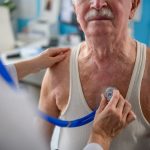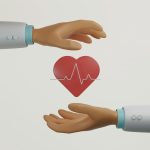Sitting too long after a heart event may raise risk of another attack or...
People who sit for long periods—more than 14 hours a day—may face a much higher risk of having another heart problem or even dying...
Warning signs of a blocked heart artery
Heart disease is one of the leading causes of death around the world, and one common type is when the arteries that bring blood...
Why bananas can lower blood pressure effectively
New research from the University of Waterloo suggests that eating more potassium-rich foods like bananas and broccoli may be even more effective for lowering...
Linoleic acid in seed oils may lower risks of heart disease and diabetes
A new study using blood biomarkers has found that linoleic acid, a type of omega-6 fatty acid found in seed oils like soybean and corn oil,...
When blood can’t flow freely to your legs: understanding peripheral artery disease
Peripheral artery disease, or PAD, is a condition where the arteries that carry blood to your arms and legs become narrow. This usually happens...
Study finds new treatment for heart failure
A new study by scientists from Baylor College of Medicine in the U.S. and the QIMR Berghofer Medical Research Institute in Australia could lead...
New blood test markers could predict heart disease risk better than cholesterol alone
For nearly 60 years, blood cholesterol tests have been the gold standard for identifying people at risk for heart disease.
But a new large-scale study,...
Common surgery sedative drug may harm the heart at night, study finds
Midazolam is a medicine that helps people relax or fall asleep before surgery. It works so well that many patients don’t remember the procedure...
A new blood pressure injection shows long-lasting benefits
A new study led by researchers from Queen Mary University of London has found that a single injection given every six months could help...
Even low levels of air pollution may cause early heart damage
A new study has found that long-term exposure to air pollution may silently damage the heart—even before any symptoms of disease appear.
Using advanced heart...










